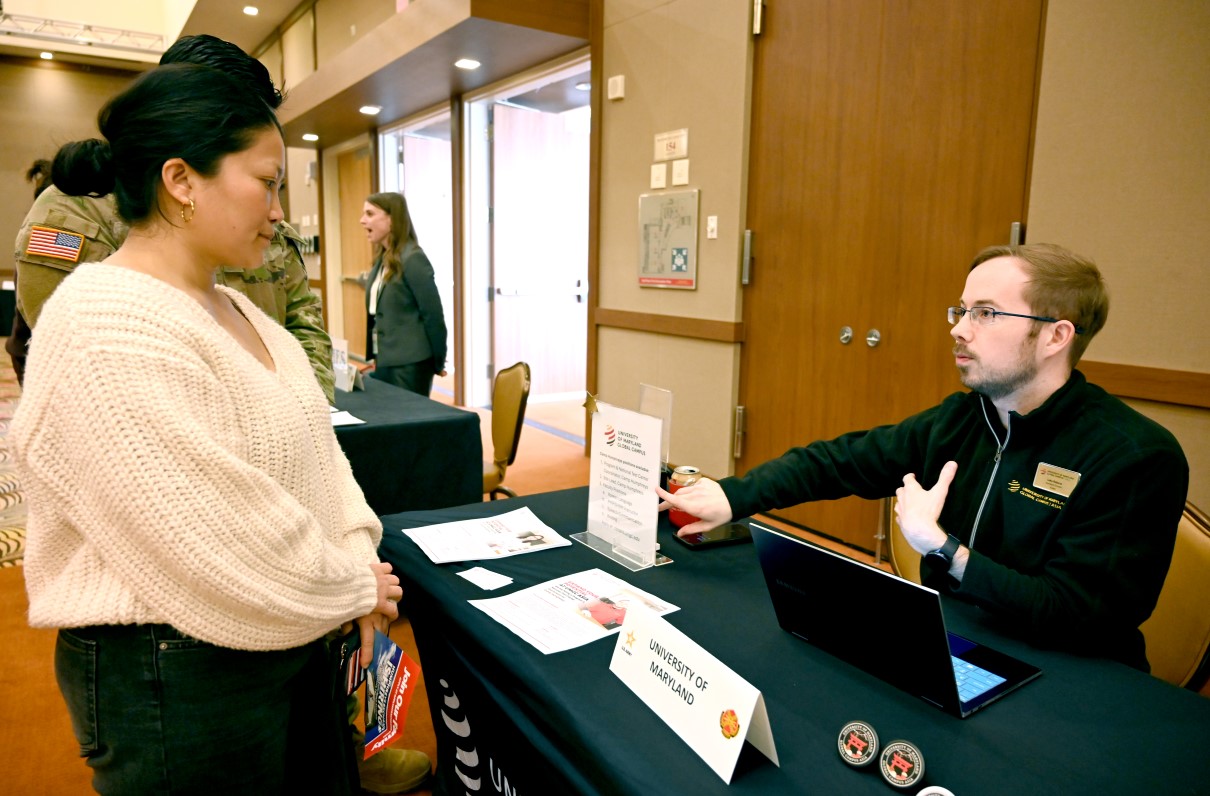Spouses who received scholarship funds under a DoD program designed to assist with their employment prospects found more success in the job market and pulled down larger salaries than their counterparts who didn’t use the program, according to a RAND Corp. report released in April.
The My Career Advancement Account (MyCAA) Scholarship – which provides up to $4,000 in assistance to eligible military spouses of servicemembers in grades E-1 to E-6, W-1 and W-2, and O-1 to O-3 – launched in its current form in 2010. The RAND study looked at spouses who applied for MyCAA funds between October 2010 and December 2011 and used any portion of the money before the program’s three-year deadline expired. Researchers found that as of 2018, MyCAA users from that period were about 10% more likely to have a job than nonusers.
The group of MyCAA users also saw a 10% to 16% increase in “nominal wages” from 2011 to 2018, far outpacing the national average. Average earnings for the MyCAA user group rose from $17,536 in 2014 to $28,647 in 2018.
[RELATED: More Spouse and Family News From MOAA]
MOAA has long supported the MyCAA program’s expansion, one of several spouse-employment initiatives we have backed in recent years. These have included DoD-run education programs, but also other approaches designed to bring more resources to bear:
- The Military Spouse Hiring Act would expand the Work Opportunity Tax Credit, allowing businesses to benefit from hiring military spouses.
- The READINESS Act would allow more federally employed military spouses to retain their careers after a PCS move by encouraging remote accommodations and/or job transfers, and allowing spouses to retain benefits like their security clearance in a non-pay status if they are unable to remain in their position.
- Recommendations from the House Armed Services Committee’s Quality of Life Panel report would expand child care access for spouses seeking employment, help DoD enter more interstate licensure compacts, and make the Military Spouse Career Accelerator Pilot (MSCAP) permanent.
Like the RAND study on MyCAA, the MSCAP program recently earned strong reviews, with 85% of its nearly 500 participants receiving full-time job offers from their fellowship providers.
While MOAA lauds these initiatives, we also support further studies into all spouse employment programs, many of which may not reach these levels of success. With resources scarce, it remains critical to shed programs with limited success or interest and focus efforts on those showing promise and positive results.
MOAA also hopes to continue its work promoting such programs to the military spouse community. There’s still work to do in this space: The RAND study pointed out nearly 46% of those polled in the 2019 Active-Duty Spouse Survey were not aware of the MyCAA program, and of the 41% of survey respondents who said they weren’t enrolled in school or job training even though they wanted to be, 73% cited “cost of education” as a reason why not.
Learn more about MOAA’s latest spouse and family advocacy efforts at MOAA’s Legislative Action Center.
Upcoming MOAA Transition and Career Events
- January Online Event Series: Finding Your Dream Job
- Jan. 12 Webinar: Exploring AI in Career Transition
- Jan. 15: MOAA's Virtual Career Fair and Hiring Event

